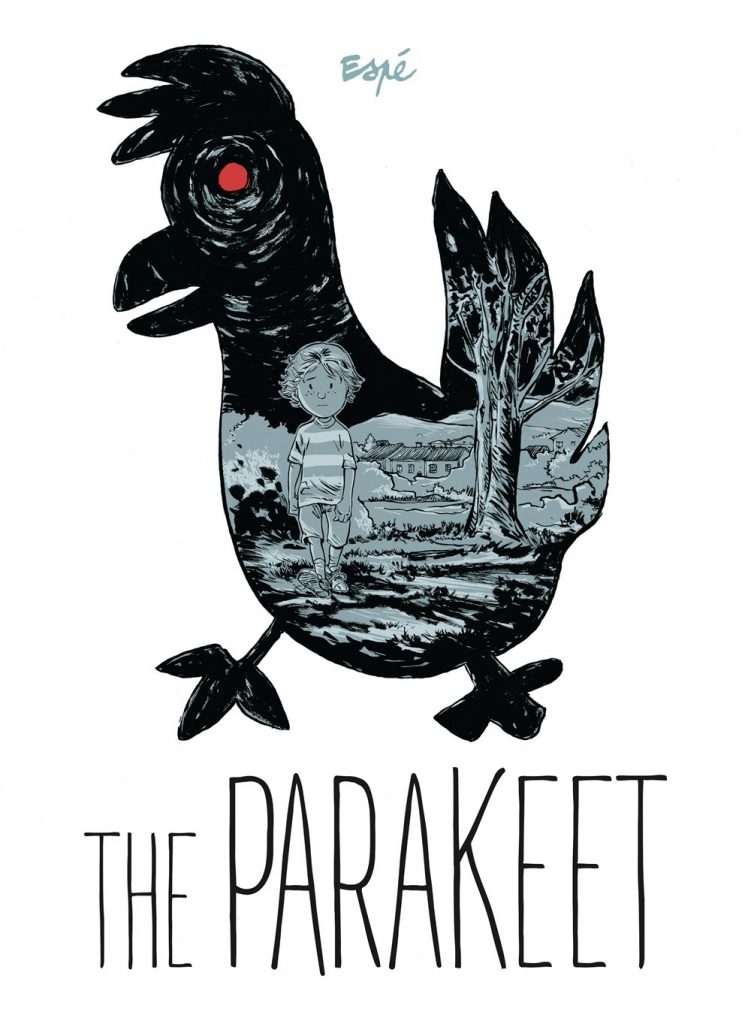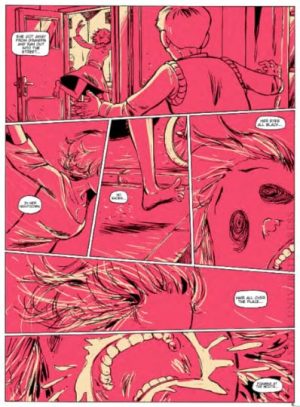Review by Frank Plowright
Rarely has a graphic novel cover so successfully concealed the true life horror and trauma within as The Parakeet, and readers prone to buying random graphic novels that look interesting may well find themselves profoundly troubled by the content. Then again, as Sébastian Portet, Espé lived through everything between the ages of five and ten.
That’s him as a child on the cover, attempting to piece the world together without having a full understanding, yet understanding enough to consistently reach out to a mother who’s never recovered from post-natal depression. As The Parakeet begins he’s eight, and used to having periods staying with his maternal grandparents because his mother is ill. Espé reverts to his former self to recreate episodes as he understood them at the time, which can bring a very dark humour to events told in the matter of fact way of a child processing what to him is normal life. An element of emotional manipulation could be noted about the presentation of everything from a child’s view, but the likelihood is that the trauma was so intense that part of Espé remains stuck at that age
His mother isn’t just depressed, but has violent mood swings, diagnosed as bipolar disorder with schizophrenic tendencies. Her life is punctuated by spells away from home at assorted medical facilities, and as related here, times when she’s at home and normal are relatively brief. Even as a child Espé’s aware there’ll always be a relapse, and in only two of the brief chapters are there relatively happy memories. Even then, in one he reconfigures his mother’s hidden illness as she walks through town with him, likening it to the X-Men’s Jean Grey carrying the threat of the Phoenix within. The remainder of the recollections are heartbreaking, and you’ll weep for the young Sébastian, and indeed his mother.
Espé uses a simple expressive drawing style, the short chapters largely presented with a single colour wash, but one that transfers instantly to vivid red when his mother’s condition changes for an astonishingly effective evocation of mood. That’s so important, as there’s barely a chapter when guilt doesn’t accumulate in the young Sébastian, from overhearing that his mother’s condition started with his birth, to an event near the end when due to falling off his bicycle he’s away from home at a pivotal moment. It’s all heart-wrenching as it’s so easily understood why a child would feel responsible while knowing they’re not. It’s a masterful balancing act.
It’s not until the final pages that the meaning of the title is revealed, and like so much else, it comes with a shock having the brutal force of a punch to the gut.
The Parakeet is an astonishing memoir, but not a graphic novel recommended for anyone whose own issues are easily triggered.





